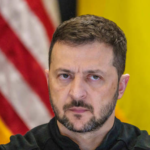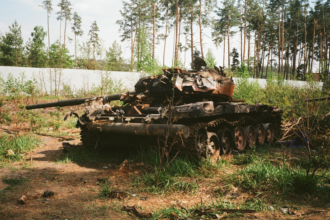Criminal's Repeated Freedom Sparks Outrage and Fear
Convicted killer Ivan Rossomakhin has been freed from jail twice to participate in the continuing conflict in Ukraine; his most recent release resulted in the cruel death of an older woman. The case has caused the public and the victim’s family much worry and anger
- Criminal's Repeated Freedom Sparks Outrage and Fear
- How Did Rossomakhin Go from Prison to the Battlefield?
- What Happened After Rossomakhin’s Brutal Crime?
- What Does the Law Say About Releasing Convicts for Military Duty?
- How Does Russia’s Recruitment Strategy Impact Public Safety?
- How Does Ukraine’s Approach to Releasing Prisoners Differ?
How Did Rossomakhin Go from Prison to the Battlefield?
Initially serving a 14-year murder term, Ivan Rossomakhin was first freed from jail in 2022 to join the Wagner mercenaries. This choice was part of a larger project to raise military ranks among prisoners. After serving in the Wagner group, Rossomakhin returned to his house in Vyatskiye Polyany, Kirov Region, Russia. There, he once more committed a horrible act, striking and murdering 85-year-old Yulia Byuskikh in her own house.
What Happened After Rossomakhin’s Brutal Crime?
Extreme savagery defined Rossomakhin’s attack on Yulia Byuskikh, which resulted in his April this year rape and murder conviction. Originally sentenced to 22 years in a high-security prison, the punishment eventually rose to 23 years, given the nature of his crime’s violence. But Rossomakhin was freed on August 19, exactly one week after his sentence started.
The granddaughter of Yulia Byuskikh voiced her shock at this situation. “My immediate response was panic. Having read the forensic records, I understand what this individual did to my grandma. That he has been freed once more is horrifying, she remarked. “The fact that this is occurring in the 21st Century… there are no words that can convey what’s happening!”
What Does the Law Say About Releasing Convicts for Military Duty?
The official release by the jail governor names a particular Russian statute allowing the hiring of prisoners for front-line service. Initially started with Yevgeny Prigozhin’s Wagner group, this activity was formalized into federal legislation. Under this statute, those who accept to fight have their remaining sentences postponed and can be granted an official pardon for acts of courage on the battlefield.
Following Prigozhin’s abortive insurrection last year, the Russian military seized control of prisoner recruiting and ramped it up. Based on the notable deaths recorded in the Donbas area, this approach captures the extreme personnel shortfall Russian troops are facing. According to the UK Ministry of Defense, Russia lost around 70,000 personnel over two months of offensive operations, underscoring the dire need for recruits.
How Does Russia’s Recruitment Strategy Impact Public Safety?
The fact that the Kremlin decided to let dangerous felons like Rossomakhin fight in Ukraine highlights the drastic steps being used to solve recruiting difficulties. She notes clearly that there is insufficient personnel. “The authorities don’t give a damn about quiet citizens if they allow those who have committed significant crimes to be cleared and released from prison. This indicates that nobody is safe in Russia.
Given Rossomakhin’s aggressive inclinations, Yulia Byuskikh’s granddaughter worries about the protection of her family today. She said, “If he returns he will try and exact revenge on us – for our efforts to guarantee he got a life sentence.” She thinks of fleeing the nation while other family members want to hide.
How Does Ukraine’s Approach to Releasing Prisoners Differ?
Ukraine excludes individuals found guilty of major crimes like murder and sexual offenses while nevertheless releasing certain fighters from jail. Earlier this year, Olena Vysotska, Ukrainian Deputy Justice Minister, said that up to 3,000 inmates had joined the military under tight restrictions.
The current state of affairs in Russia calls not only on the extreme actions performed during the conflict but also begs essential issues regarding the balance between military requirements and civilian safety. Discharging hazardous people into active war areas has significant consequences for home and international security.
India-China Direct Flights Resume After Five-Year Suspension








